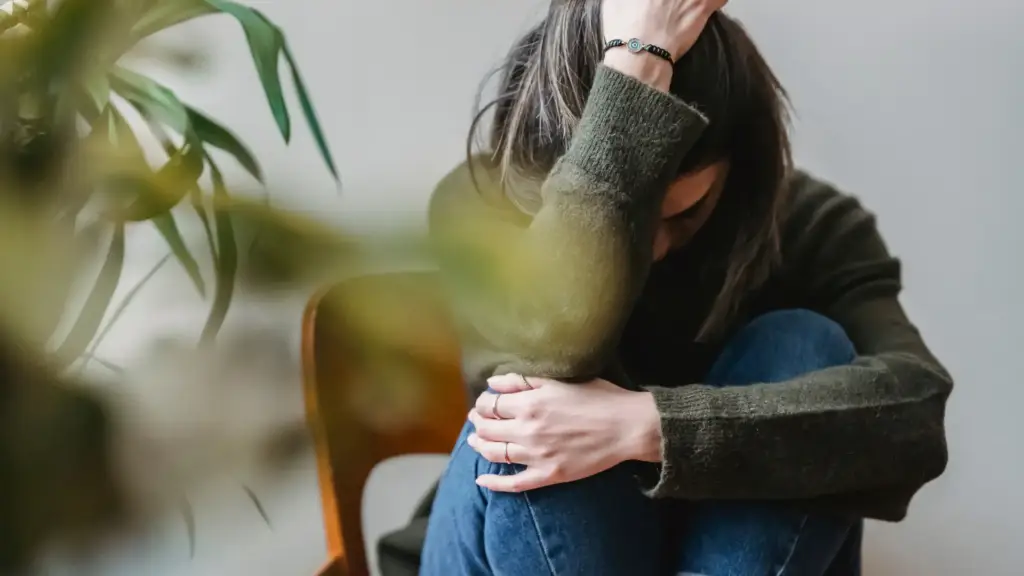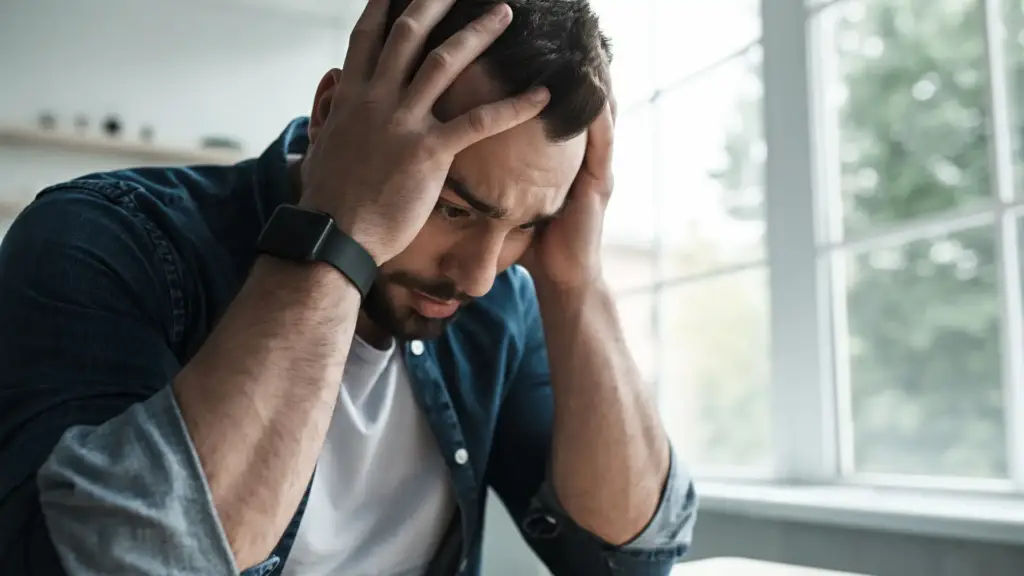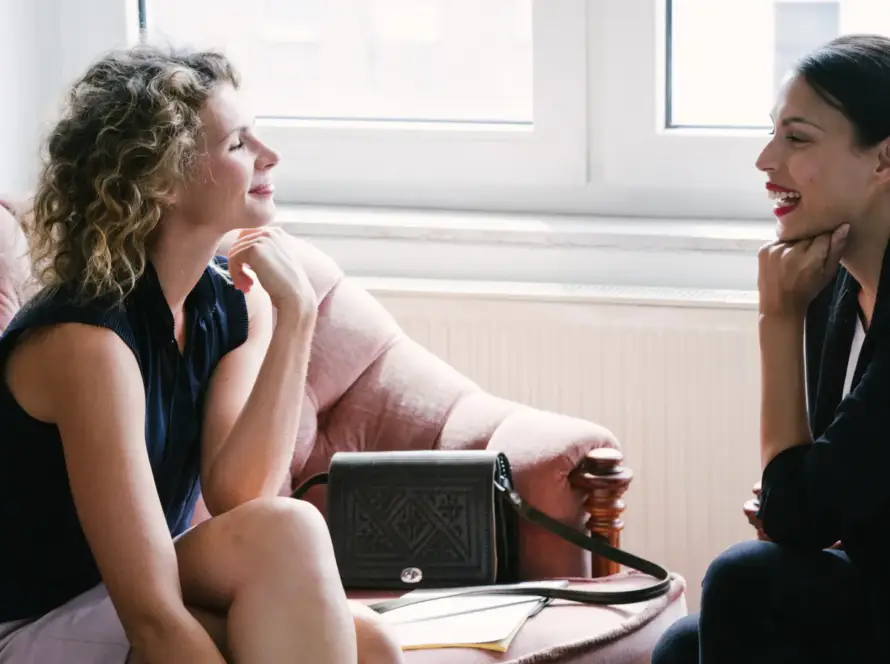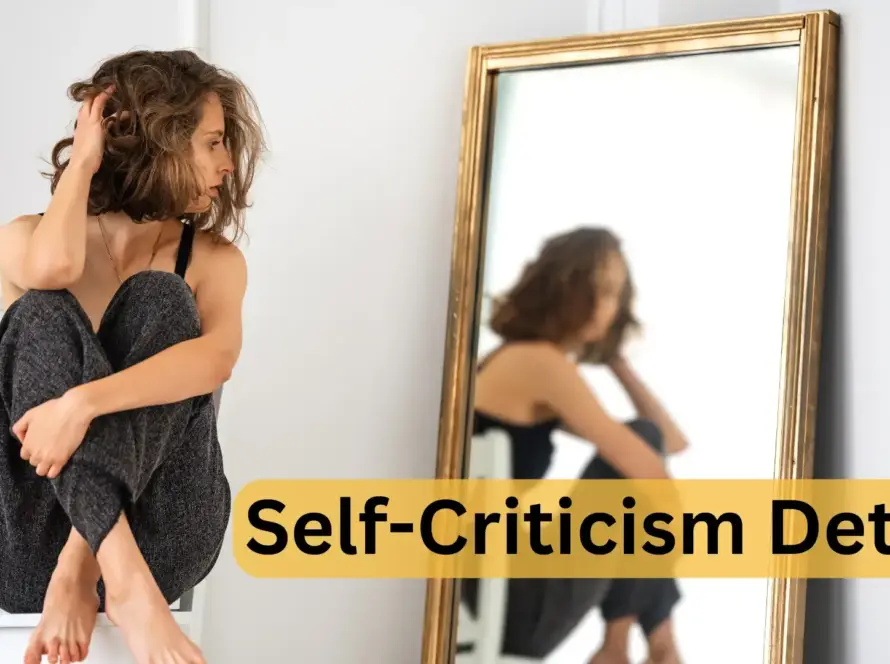
I had gone through dating anxiety at one point in my life and here are some tips that have helped me get through it.
And yes, sadly we do have to go through and resolve our anxiety instead of just avoiding it or pushing it to the side. The problem with not sorting it out is that it keeps coming back.
So best is to go through it once, and then you know you’re done with it forever.
And as I mentioned here are some tips that have helped me, and I hope will help you too.
But first things first!
Let’s see what dating is, what are the signs and symptoms to make sure we’re on the same page here.
What is dating anxiety?
Dating anxiety, also known as relationship anxiety or romantic anxiety, refers to the feelings of fear, worry, and unease that individuals experience in the context of dating or being in a romantic relationship.
It is a type of social anxiety that specifically manifests in the dating realm.
People with dating anxiety often have intense concerns and insecurities about their worthiness, desirability, and ability to form and maintain romantic connections.
Dating anxiety can manifest in various ways, such as excessive worry about being judged or rejected, fear of intimacy or vulnerability, overthinking and analyzing every aspect of the relationship, and a constant need for reassurance from the partner.
These anxious thoughts and feelings can significantly impact one’s dating experiences, self-esteem, and overall well-being.
It’s important to note that dating anxiety is a common experience and can affect individuals regardless of their gender or age.
However, the severity and specific triggers may vary from person to person.
If left unresolved, dating anxiety can hinder one’s ability to establish and sustain healthy romantic relationships. Seeking support and employing coping strategies can help individuals manage and overcome dating anxiety.
Dealing and working through dating anxiety is a process in itself, but it is totally doable and freeing once done.
What are dating anxiety symptoms?
Dating anxiety can manifest through various symptoms that are emotional, cognitive, and behavioral in nature. Here are some common symptoms of dating anxiety:
- Excessive worry: Constantly thinking about the outcome of a date, worrying about being judged or rejected, and imagining worst-case scenarios.
Worrying about things like: Did he or she like me? Will they want to see me again?
- Fear of rejection: Feeling intense anxiety or fear of being turned down, not being liked, or not being good enough for the other person.
- Overanalyzing: Overthinking and scrutinizing every aspect of the date or relationship, such as the person’s words, actions, and gestures.
- Physical discomfort: Experiencing physical symptoms of anxiety, such as rapid heartbeat, sweating, trembling, shortness of breath, stomachaches, or headaches.
- Avoidance behaviors: Avoiding or canceling dates, making excuses to not engage in social interactions, or avoiding situations that may lead to potential romantic encounters.
I remember that after having quite a few failed dates I would just refuse to go on any more. Luckily I had my family and friends as a support system and they’ve helped me get out there again.
And if you have family and friends that you are close to, allow them to be close to you. It might actually help with your anxiety to know that someone’s there for you/
And I’m so glad they did… because ultimately that led to me meeting my amazing husband.
- Negative self-talk: Engaging in self-critical thoughts, doubting one’s attractiveness or worthiness, and having low self-esteem.
- Seeking reassurance: Constantly seeking validation and reassurance from the partner or others, needing constant affirmation of being liked or desired.
- Difficulty with intimacy: Feeling uncomfortable or fearful of emotional closeness, struggling to trust others, or having difficulty expressing vulnerability.
- Social withdrawal: Withdrawing from social activities, isolating oneself, or feeling uncomfortable in social settings that involve dating or relationships.
- Performance anxiety: Feeling pressure to impress the other person, fearing judgment about appearance or behavior, or experiencing anxiety about sexual performance.
It’s important to note that everyone experiences dating anxiety differently, and the symptoms can vary in intensity and duration.
You might have one or two of these symptoms, or even all of them. There are various degrees of dating anxiety.
If these symptoms significantly interfere with your daily life or well-being, it may be beneficial to seek support from a mental health professional who can provide guidance and strategies to manage dating anxiety.
What causes dating anxiety?
Dating anxiety can have multiple causes, and it often arises from a combination of individual factors, past experiences, and societal influences.
Here are some common causes of dating anxiety:
Previous negative dating experiences, such as rejection, heartbreak, or betrayal, can contribute to dating anxiety. These experiences can create fear and anticipation of similar outcomes in future dating situations.
The fear of being judged or evaluated negatively by others, including potential romantic partners, can also lead to dating anxiety.
Concerns about one’s appearance, personality, or social skills can trigger anxiety about how others perceive them.
Individuals with low self-esteem may struggle with feelings of inadequacy or unworthiness, leading to anxiety in dating situations. They may doubt their attractiveness or believe they are undeserving of love and affection.
The fear of rejection or being abandoned by a romantic partner can generate significant anxiety. The possibility of being rejected can trigger feelings of unworthiness, fueling dating anxiety.
Dating anxiety often overlaps with social anxiety, which is characterized by a fear of social interactions and being negatively evaluated by others.
Social anxiety can manifest in dating scenarios, where the pressure to make a good impression and engage in small talk can be particularly anxiety-provoking.
Having unrealistic expectations about dating, relationships, or oneself can contribute to anxiety. Unrealistic beliefs about finding a perfect partner, having a flawless relationship, or constantly worrying about making mistakes can amplify dating anxiety.
Societal pressures and cultural norms regarding dating and relationships can impact individuals’ anxiety levels.
Media portrayals of idealized romance, societal expectations of finding a partner, or pressure to conform to certain relationship milestones can contribute to dating anxiety.
One’s attachment style, shaped by early childhood experiences and relationships, can influence dating anxiety.
For example, individuals with an anxious attachment style may be more prone to fear rejection and experience heightened anxiety in dating situations.
It’s important to recognize that dating anxiety is a complex and multifaceted issue, and the causes can vary from person to person.
Understanding the underlying factors contributing to dating anxiety can be helpful in developing coping strategies and seeking appropriate support.

How can I manage my anxiety while dating?
Managing anxiety while dating can greatly improve your overall dating experience and help you establish healthier connections.
Here are some strategies that I’ve used and I hope they will help you too:
- Self-awareness: Gain a better understanding of your anxiety triggers and patterns.
Reflect on past dating experiences to identify specific situations or thoughts that tend to trigger anxiety.
This self-awareness can help you develop strategies to manage those triggers effectively.
- Challenge anxious thoughts: Practice challenging and reframing negative or anxious thoughts that arise during dating.
Instead of catastrophizing or assuming the worst, replace negative thoughts with more realistic and balanced ones.
Remind yourself that not every date or interaction has to be perfect, and it’s okay to make mistakes.
And remind yourself that it is ok if your date doesn’t like you the same way you like them. It just means they’re not the right person for you.
- Deep breathing and relaxation techniques: Incorporate deep breathing exercises and relaxation techniques into your daily routine and during dates.
Deep, slow breaths can help calm your nervous system and reduce anxiety.
Other techniques like progressive muscle relaxation, meditation, or mindfulness can also be helpful.
These help you stay grounded and not let negative thoughts take over and derail your day and date.
- Gradual exposure: If certain dating situations trigger intense anxiety, consider gradual exposure to those situations.
Start with smaller, low-pressure social interactions, and gradually work your way up to more challenging dating scenarios.
Gradual exposure allows you to build confidence and resilience over time.
- Set realistic expectations: Recognize that dating involves uncertainties and that not every date will lead to a long-term relationship.
Set realistic expectations for yourself and others, focusing on enjoying the present moment rather than fixating on the future outcome.
Try to refrain from daydreaming about what could be or what you think should happen next and just go with the flow.
I know it is not easy to do. But many times we allow ourselves to daydream and then get more anxious if things don’t turn out the way we imagined them to.
- Practice self-care: Prioritize self-care activities that help reduce overall stress and anxiety.
Engage in activities that bring you joy and relaxation, such as exercising, spending time in nature, practicing hobbies, or engaging in creative outlets.
Taking care of your physical and mental well-being can positively impact your dating experiences.
- Communicate openly: Be open and honest with your date about your anxiety.
It can be helpful to communicate your feelings and concerns, as it fosters understanding and support.
Your date may also have their own anxieties, and open communication can create a more empathetic and supportive connection.
- Seek support: Consider seeking support from a therapist or counselor who specializes in anxiety or relationship issues.
They can provide valuable guidance, tools, and strategies tailored to your specific needs.
Support groups or online communities focused on dating anxiety can also offer a sense of validation and encouragement.
Remember, managing dating anxiety takes time and practice. Be patient and kind to yourself throughout the process, and celebrate even small victories along the way.
Should I disclose my anxiety to my date?
Deciding whether or not to disclose your dating anxiety to your date is a personal choice that depends on your comfort level, the stage of the relationship, and your assessment of the situation.
Here are some factors to consider when making this decision:
Firstly, consider the stage of your relationship and the level of trust and openness you have established with your date.
If you’re in the early stages and don’t feel comfortable disclosing personal information yet, it’s perfectly okay to wait until you develop a deeper connection.
Secondly, if your dating anxiety significantly affects your communication or behavior, it might be helpful to share this information with your date.
For example, if you tend to overthink or need reassurance, explaining these tendencies can foster better understanding and more effective communication.
Thirdly, sharing your dating anxiety can help your date understand your experience and provide the necessary support.
Some people appreciate the honesty and may even relate to your struggles, leading to a deeper connection.
It can also create an opportunity for your date to share their own vulnerabilities and insecurities, promoting a more empathetic and supportive dynamic.
Fourthly, choose an appropriate time and context to have this conversation. It’s generally beneficial to have open and honest conversations when both parties are relaxed and receptive.
Select a comfortable and private setting where you can express yourself freely without distractions.
And fifthly, trust your instincts and assess the dynamics of the relationship. If you feel that disclosing your dating anxiety could bring you closer and strengthen the bond, it may be worth sharing.
However, if you have concerns about how your date might react or if you feel it may negatively impact the relationship, you can delay the disclosure until you’re more certain.
Remember, there’s no right or wrong answer when it comes to disclosing your dating anxiety.
It’s ultimately about what feels right for you and aligns with your own comfort level and the dynamics of the relationship.
If you do decide to disclose, be open, honest, and clear about your needs, while also being receptive to your date’s reactions and willingness to support you.
But you should not feel any sort of pressure either way.
Dating is supposed to be enjoyable and fun, but also a good time to get to know someone at a deeper level.

How can I build my self-confidence while dating?
Building self-confidence while dating is an important aspect of creating positive and fulfilling experiences. Here are some strategies to help boost your self-confidence:
Take the time to reflect on your positive qualities, strengths, and achievements. Recognize and appreciate the unique aspects of yourself that make you who you are.
Embrace self-acceptance by acknowledging that everyone has flaws and imperfections, and that they do not define your worth or desirability as a person.
Pay attention to your inner dialogue and challenge negative self-talk. Replace self-critical thoughts with positive and affirming statements.
Practice self-compassion and treat yourself with kindness and understanding.
Focus on your strengths and the positive aspects of yourself rather than dwelling on perceived weaknesses or insecurities.
Setting realistic expectations for yourself and your dating experiences is key.
Understand that not every date will lead to a long-term relationship, and that’s okay.
Approach dating as an opportunity for personal growth, self-discovery, and enjoying the process rather than solely focusing on the end result.
Prioritize self-care activities that make you feel good and enhance your well-being.
Engage in regular physical exercise, eat a balanced diet, get enough sleep, and engage in activities you enjoy.
Taking care of yourself physically, mentally, and emotionally can boost your self-confidence and overall outlook on dating.
Challenge yourself to step out of your comfort zone and engage in activities that push your boundaries.
This could involve trying new hobbies, attending social events or gatherings, or exploring new dating avenues.
Each time you step out of your comfort zone, you build resilience and confidence in your ability to navigate new situations.
Celebrate your dating achievements, no matter how small. Acknowledge and celebrate your progress, such as initiating conversations, going on dates, or taking risks.
Recognize your efforts and give yourself credit for putting yourself out there. By celebrating your achievements, you reinforce a positive self-image and boost your self-confidence.
Surround yourself with a supportive network of friends, family, or a therapist who can provide encouragement and positive reinforcement.
Share your dating experiences and challenges with trusted individuals who can offer guidance, perspective, and support.
Having a strong support system can bolster your self-confidence and help you navigate the ups and downs of dating.
Remember, building self-confidence is a gradual process, and it takes time and practice.
Be patient and kind to yourself along the way, and remember that self-confidence is about embracing your authentic self and valuing your own worth, regardless of external validation.
How long does it take for my anxiety of dating to go away?
The duration for dating anxiety to subside can vary from person to person.
It depends on several factors, including the severity of your anxiety, the specific triggers, your efforts in managing it, and your individual progress.
Dating anxiety is a complex issue, and overcoming it is a gradual process rather than an immediate fix. It’s important to approach it with patience and understanding.
With consistent effort, support, and using effective coping strategies, you can gradually reduce the impact of dating anxiety over time. It may be helpful to work with a therapist or counselor who specializes in anxiety or relationship issues.
They can provide guidance, tools, and techniques tailored to your specific needs.
Remember that the goal is not necessarily to completely eliminate dating anxiety but to learn how to manage it in a way that allows you to engage in dating and relationships more comfortably.
You may still experience occasional moments of anxiety, but with time and practice, you can develop coping mechanisms and gain more confidence in navigating those situations.
Everyone’s journey is unique, so try not to compare your progress to others.
Focus on your own growth and celebrate even the small steps forward.
Each experience and interaction can contribute to building your resilience and self-assurance.
Trust in yourself and be patient with the process, allowing yourself the time needed to gradually reduce the impact of dating anxiety.
As a conclusion, there are quite a few things you can do to work through your dating anxiety.
But remember that it is a process and it might take some time.
But it is doable. And you can get through it!










